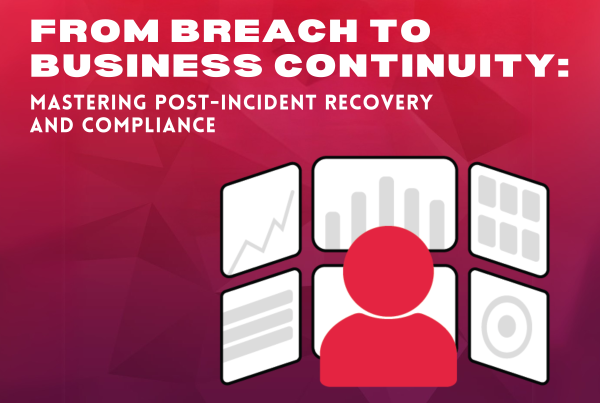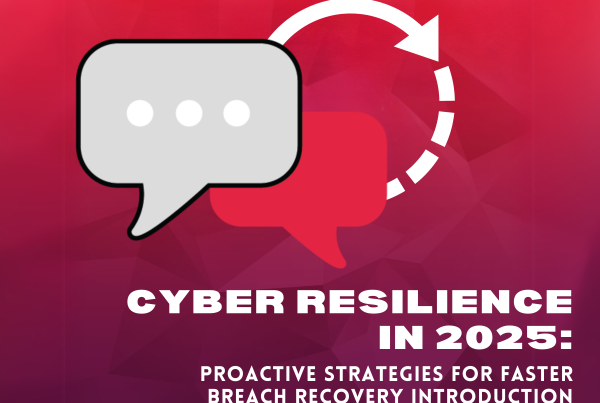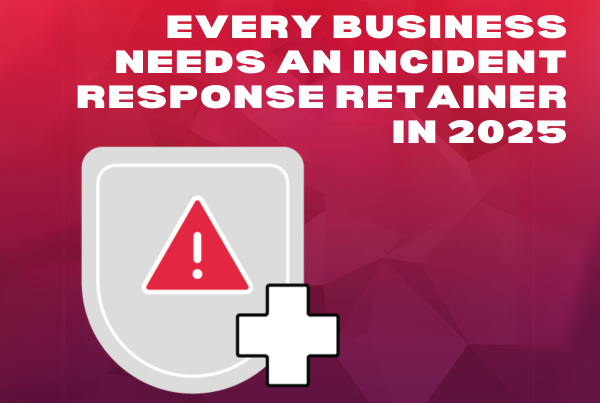Cybersecurity has rapidly evolved into a critical component of business operations. With the growing complexity and interconnectivity of modern supply chains, organizations are increasingly exposed to cyber threats. Let us explore the impact of supply chain intelligence on cybersecurity and how it is transforming the way businesses protect their digital assets.
The Expanding Role of Cybersecurity in Supply Chains
Traditionally, cybersecurity focused on safeguarding an organization’s internal IT systems and data. However, businesses now rely on complex, interlinked networks of suppliers, partners, and service providers. This has expanded the scope of cybersecurity, requiring a broader approach to security across the entire supply chain.
- Supply Chain Risk Management (SCRM) and ICT Supply Chain Risk Management (ICT-SCRM)
Supply Chain Risk Management (SCRM) covers a set of activities and practices undertaken by organizations to identify, assess, and manage risks in their supply chains. ICT Supply Chain Risk Management (ICT-SCRM), as an integral part of an organization’s SCRM strategy, specifically addresses risks presented by ICT assets and services, along with their producers, distributors, service providers, and other associated entities in the supply chain.
- Supply Chain Cyber Security
Supply Chain Cyber Security is the practice of identifying, assessing, and managing cyber security risks in the supply chain. It involves technological and human risk factors, making it a comprehensive approach to safeguarding an organization’s digital assets throughout the supply chain.
Understanding Your Suppliers
A critical aspect of cybersecurity is understanding your suppliers. These suppliers could range from software vendors and cloud service providers to third-party logistics partners. Each entity within your supply chain can either enhance your cybersecurity resilience or introduce vulnerabilities that cyber adversaries could exploit.
Supplier Selection and Risk Assessment
Selecting the right suppliers and assessing their cybersecurity practices are pivotal steps in ensuring the security of your supply chain. You need to establish a comprehensive framework for prospective supplier cybersecurity risk assessments. Consider the following elements:
- Security Requirements: Collaborate internally to define and document security requirements proportionate to the associated risk. These requirements should encompass auditing supplier cybersecurity practices.
- Risk Assessment: Evaluate the cybersecurity posture of potential suppliers during the procurement process. This assessment helps you determine their alignment with your security standards.
Supplier Security Controls and Compliance
Existing controls in your organization should be assessed to understand how the introduction of new suppliers may impact them. Additionally, compliance requirements, especially in the case of international suppliers, must be carefully considered.
Communication and Collaboration
Effective communication and collaboration with your suppliers regarding cybersecurity are vital. Cybersecurity should be viewed as a mutual concern, and suppliers should be encouraged to provide feedback and share their concerns about your organization’s security arrangements. This collaborative approach creates a stronger bond and fosters a sense of shared responsibility for supply chain cybersecurity.
Risk Management and Incident Response
A well-rounded approach to managing supply chain cybersecurity risks includes:
- Ongoing Monitoring: Continuously monitor and review supplier cybersecurity practices and vulnerabilities. This provides insights into the changing threat landscape.
- Internal Risk Management: Evaluate how supplier relationships may impact your existing security practices and controls. This helps in adapting to new cybersecurity realities.
- Incident Response: Develop comprehensive incident response plans that involve suppliers in the process. Collaborate on strategies to mitigate risks and respond effectively to security breaches.
The Cybersecurity Risks in Your Supply Chain
Understanding the cybersecurity risks your supply chain poses to your business is a crucial element of supply chain intelligence. Cyber threats in supply chains include:
- Malware Injection: Real-world incidents, such as the Trojanized ASUS update utility software, illustrate how cyber adversaries can introduce malware into the supply chain. In this case, malicious actors distributed malware-laden software through ASUS’ own update platform, exploiting trust to infiltrate specific user systems.
- Open Source Vulnerabilities: The discovery of Octopus Scanner targeting open source software repositories on Github underscores the growing focus on open source code within the supply chain. This form of malware embeds malicious code in software projects, compromising machines and granting unauthorized access to sensitive information.
- Sophisticated Supply Chain Attacks: The SolarWinds incident of 2020 exemplifies the consequences of a highly sophisticated supply chain attack. Malicious actors breached SolarWinds’ systems, inserting malicious code into software updates distributed to their customers. Approximately 18,000 customers downloaded the compromised software, leading to data breaches and significant financial and reputational damage.
In Conclusion
The strategic role of supply chain intelligence in cybersecurity cannot be overstated. Effective cybersecurity management goes beyond an organization’s boundaries to cover a complex web of suppliers and partners. By implementing robust supply chain intelligence practices and nurturing collaborative relationships with your suppliers, your business can fortify its defense against cyber threats and disruptions. This not only safeguards your organization but also provides a competitive edge in a world where cybersecurity excellence is a game-changer. In the context of supply chain cybersecurity, knowledge is power, and the power to protect your business is within your reach.
About IPV Network
Since 2016, IPV Network has been a trusted partner of leading enterprises in the Philippines. It brings the best-of-breed cybersecurity solutions. IPV network helps businesses identify, protect, detect, respond, and recover from cyber threats. IPV Network is DICT certified to conduct vulnerability assessment and penetration testing (VAPT) to evaluate cyber systems. Email us at [email protected] or call (02) 8564 0626 to get your FREE cybersecurity posture assessment!
Sources:
https://www.ncsc.govt.nz/assets/NCSC-Documents/NCSC-Supply-Chain-Cyber-Security.pdf


